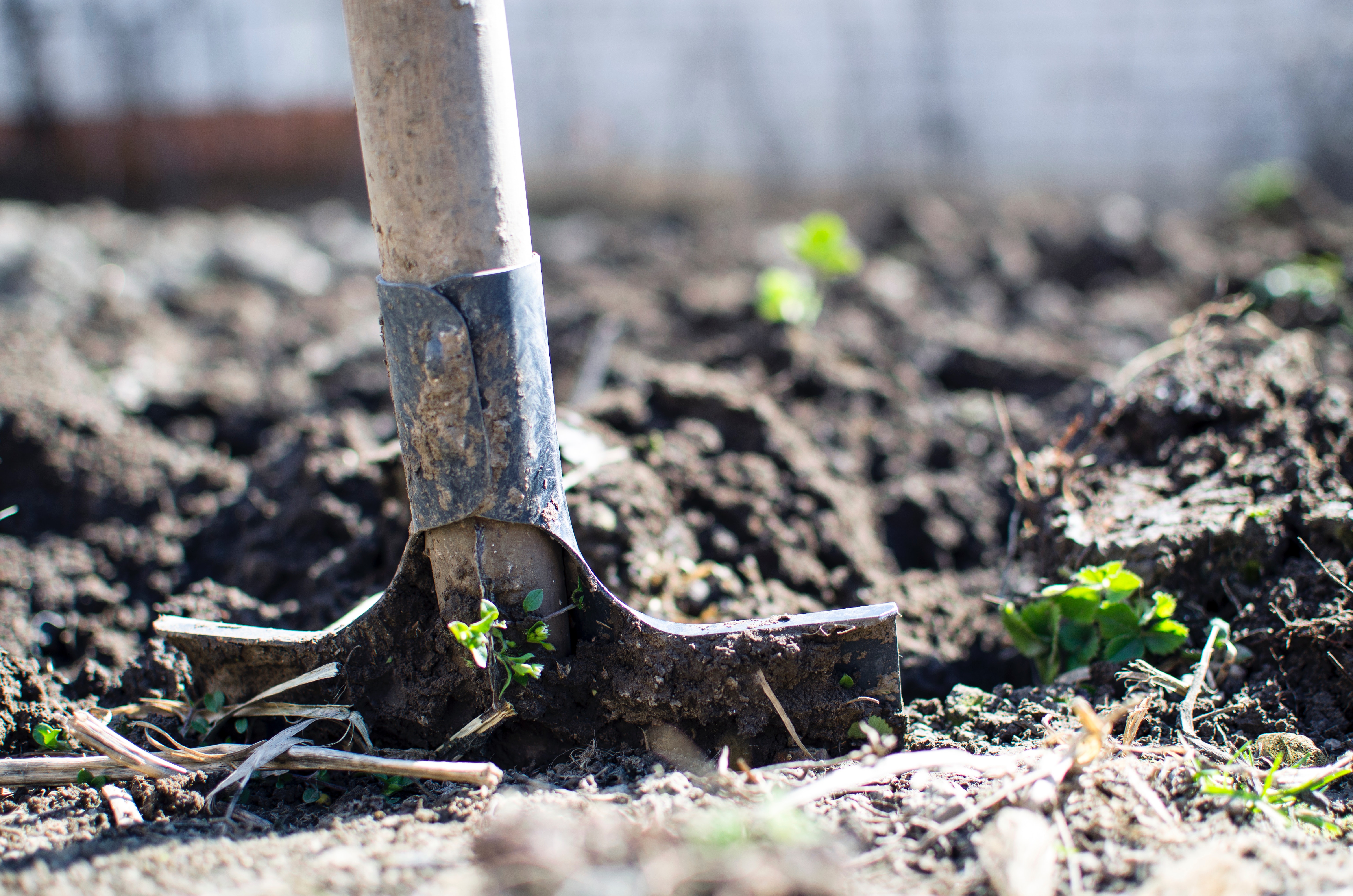Considerations for environmentally-friendly gardening
With the lengthening days, and sunny-coloured daffodils emerging, our thoughts are turning to spring and the new gardening season. Once we get past this current icy blast, trips to the garden centre or plant nursery will become a regular occurrence again. Foremost in the mind is usually whether the plants will be great nectar or food sources for butterflies or moths. However, when buying potted plants, we should also consider four significant environmental issues: pesticides, biosecurity, peat, and plastic.
Pesticides
Ornamental plants are routinely treated with insecticides and fungicides during production. Two recent studies – by Greenpeace (1) and Prof Dave Goulson (Professor of Biology at the University of Sussex) and colleagues (2) - have shown that around 70% of plants sold at garden centres still have significant residues of these pesticides present in the plant tissues when they reach retailers and gardens - in particular, neonicotinoids. These insecticides spread systemically through the whole plant to all the tissues (leaves, flowers, roots and stems, as well as pollen and nectar). Even plants marketed as being pollinator-friendly due to their nectar and pollen are affected.
Neonicotinoids are acutely toxic to bees and other pollinator species by direct contact but even non-fatal doses can still damage their health and impair their ability to forage and navigate. The scientific evidence has been steadily building for some time that neonicotinoid pesticides used in agriculture are having a widespread impact on bees and other pollinators including moths and butterflies (3) along with birds and other wildlife. It is very concerning to realise that gardeners could also, unknowingly, be contributing to their exposure to harmful chemicals. Neonicotinoids can remain active in the soil for many months but the residues in plants and soil will break down over time, which is reassuring if your garden is well established.
If you don’t want to risk buying plants, bulbs or seeds that could harm pollinators then find an organic nursery or plant swap with friends who garden organically.
Biosecurity
Pot-grown plants imported into the UK run the risk of introducing non-native invasive species and pathogens, with potentially serious implications for wildlife. Growing from seed, swapping plants with friends and buying potted plants that have been grown in the UK are all ways to reduce your contribution to this problem.
Peat
When buying bags of compost always choose a peat-free option. Additionally, if buying potted plants ask whether they have been grown in peat-free compost. Peat bogs are important habitats for many species including the Large Heath butterfly. When peat is extracted for commercial purposes this precious environment is destroyed, flooding exacerbated and large amounts of carbon dioxide are released into the atmosphere.
Plastic
Currently there is public outcry about the amount of plastic waste that is being generated and great willingness to reduce the amount used. Many garden centre plants are sold in plastic pots or polystyrene trays, posing a problem for environmentally-conscientious gardeners. You could grow from seed as an alternative or you may be able to find plants grown in natural (eg: coir) pots – if not you could ask your garden centre what they are doing to reduce the use of plastics. Always reuse items if possible and check if they have been made of recycled plastic or can be recycled to keep the plastic out of landfill. You could repurpose household objects such as old washing up bowls as flower containers.
Other issues
There are a few other environmental issues which you could bear in mind. For example, check the source of wood for items such as fences and benches - ideally it should be local or recycled or sustainable, sometimes shown by accreditations marks such as the Forest Stewardship Council (FSC). You could also save on wood and create as much wildlife-friendly habitat as possible by growing a hedge or not covering your garden with wooden decking. To keep your energy footprint low, consider using hand tools as much as possible, in place of power tools. Water your garden using rainwater collected in a water butt. Recycle your garden trimmings in your own compost heap or via your local garden waste scheme.
Finally…
Despite all these issues, it is important to stay motivated and enthusiastic about helping wildlife. If you only manage to make one change, that is a step in the right direction. Start by asking questions at your local garden centre or plant nursery about the provenance of their plants, or see if they have their environmental policy on their website. Try and buy organic or swap plants with friends and neighbours who garden organically. With one in four front gardens paved over and butterflies and moths in decline, a container of nectar plants still has immense value.
Happy Gardening!
The Secret Gardener
Note: B&Q, sponsors of the Garden Butterfly Survey, are committed to moving away from peat in their products – their easyGrow bedding plants are peat free. They also sell peat free compost and intend to have stopped selling any peat in compost by 2020. Their flowering plant range now on sale is grown free from all nine neonicotinoid pesticides.
Research links shown in the text


